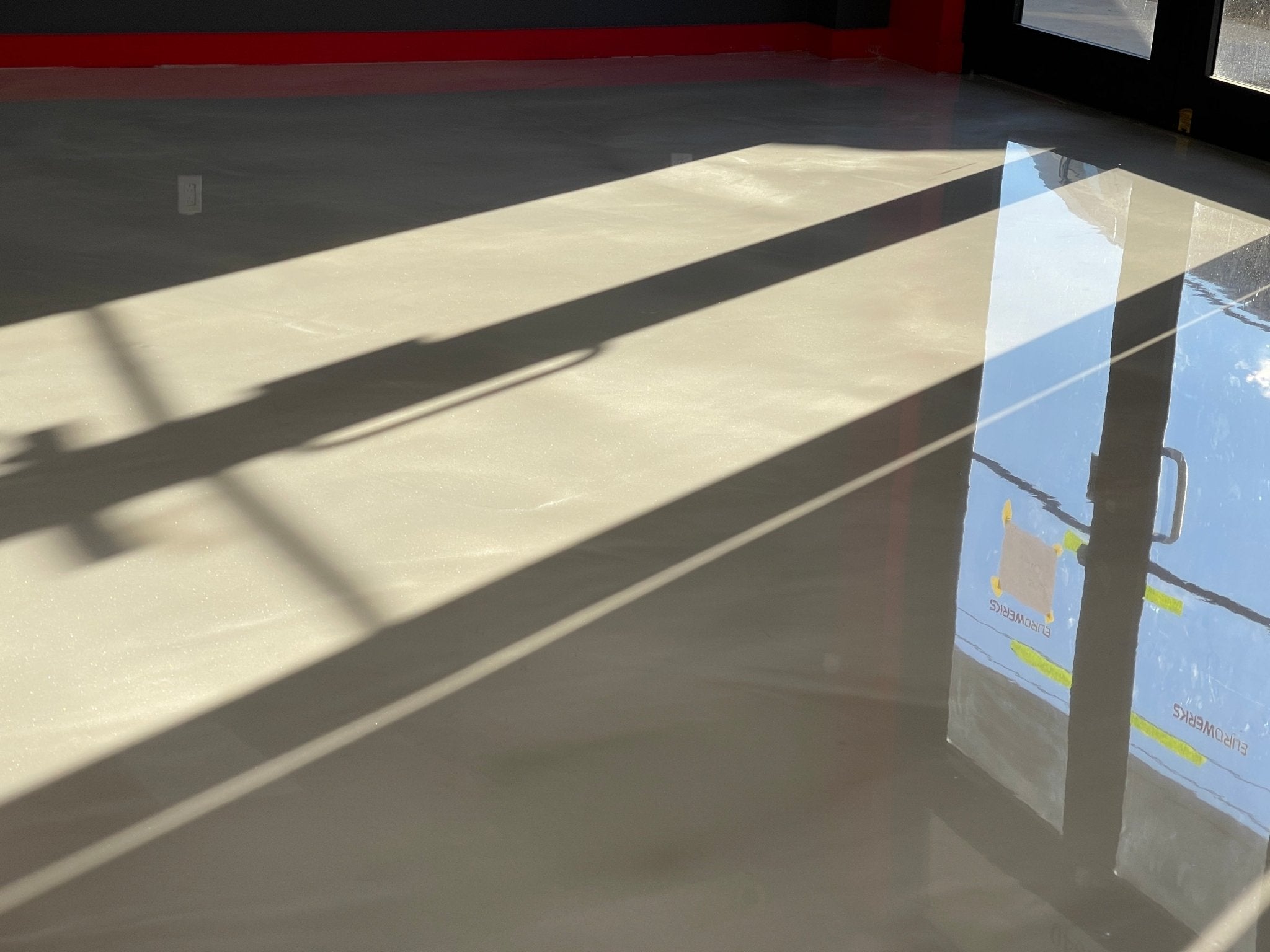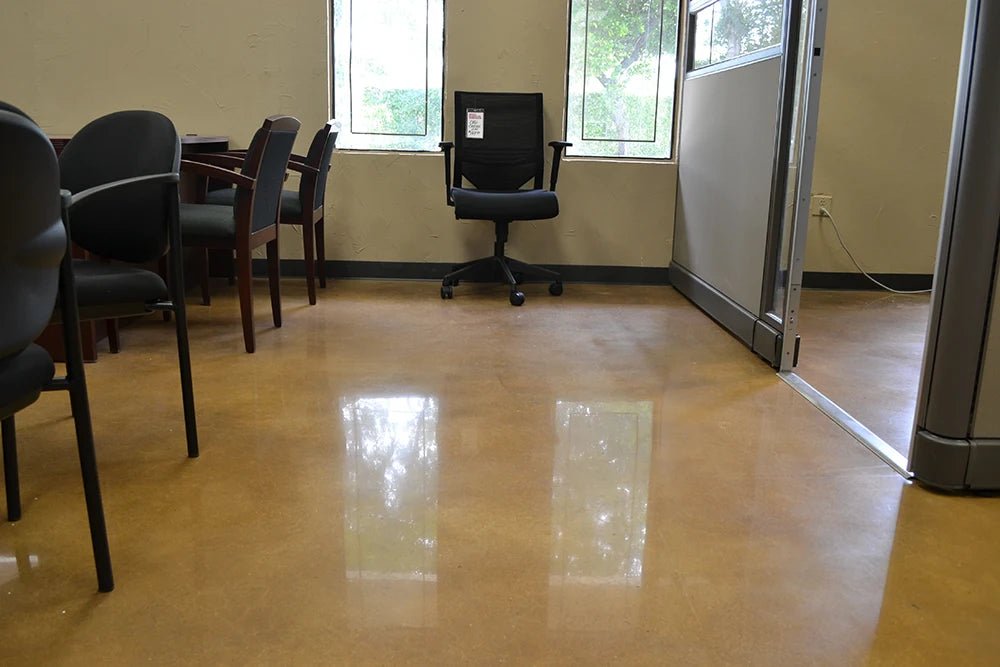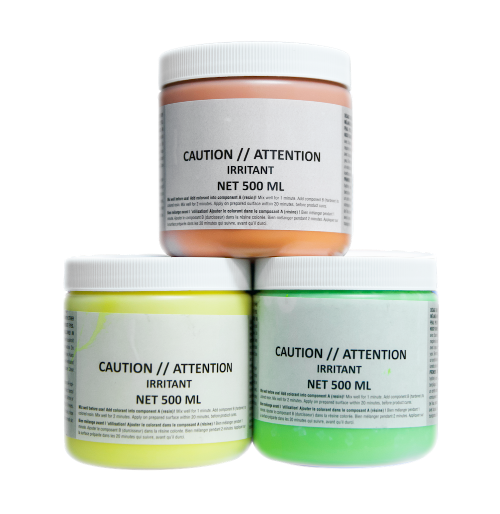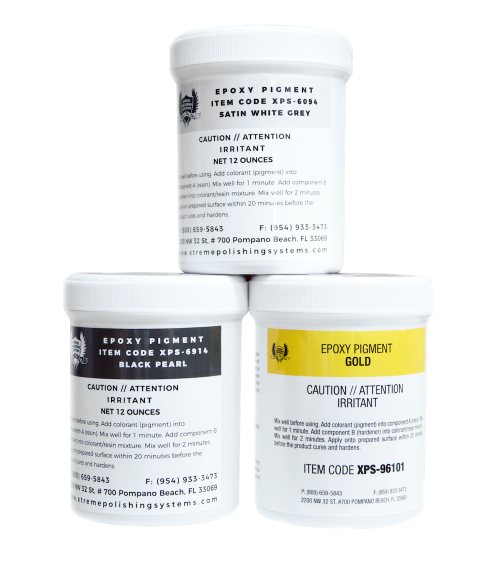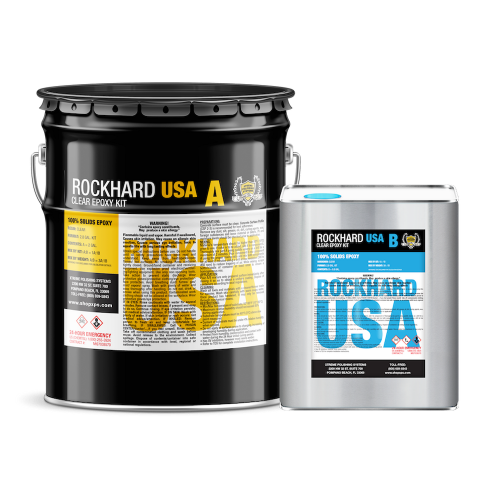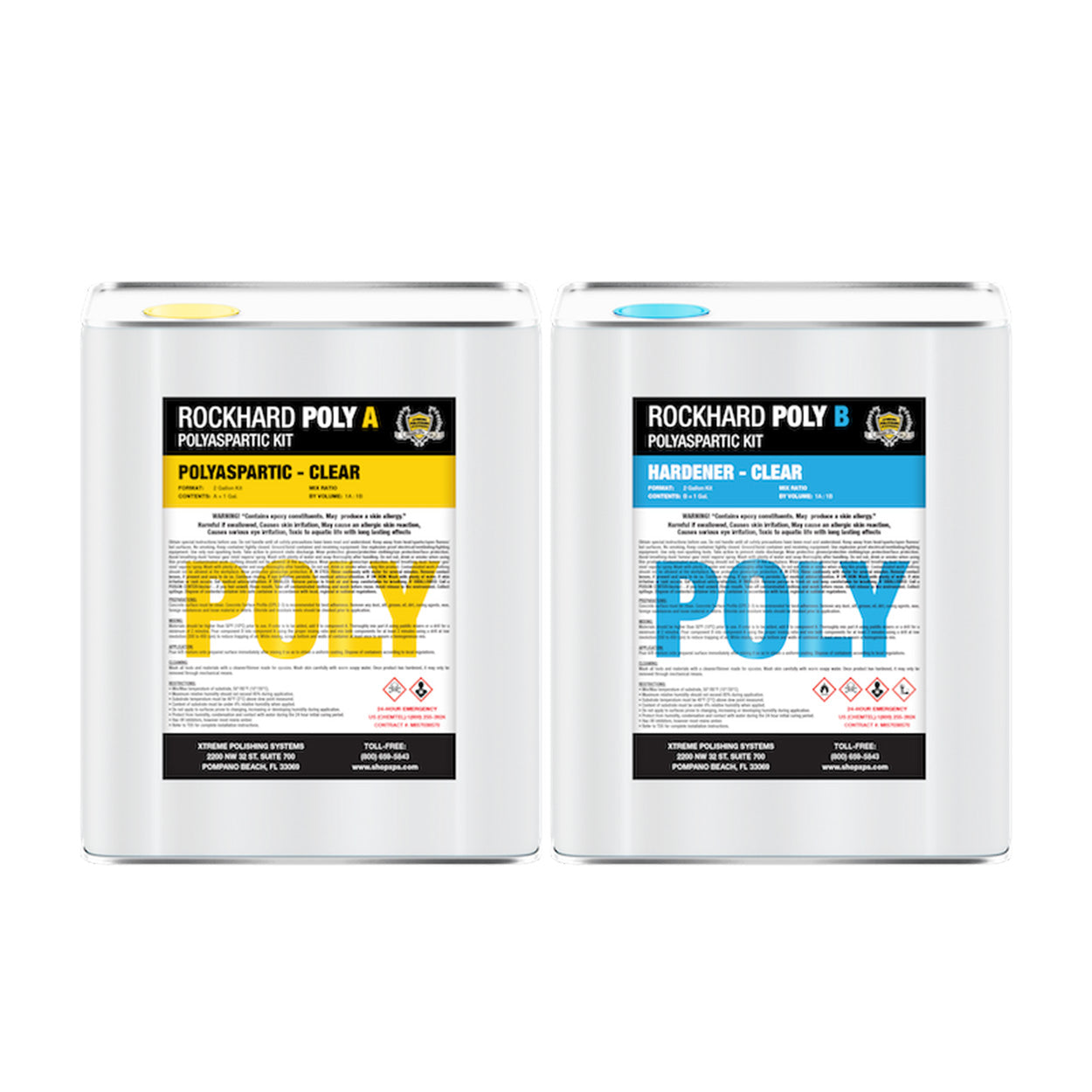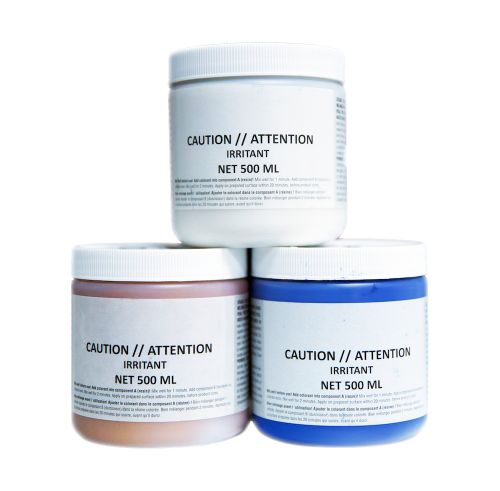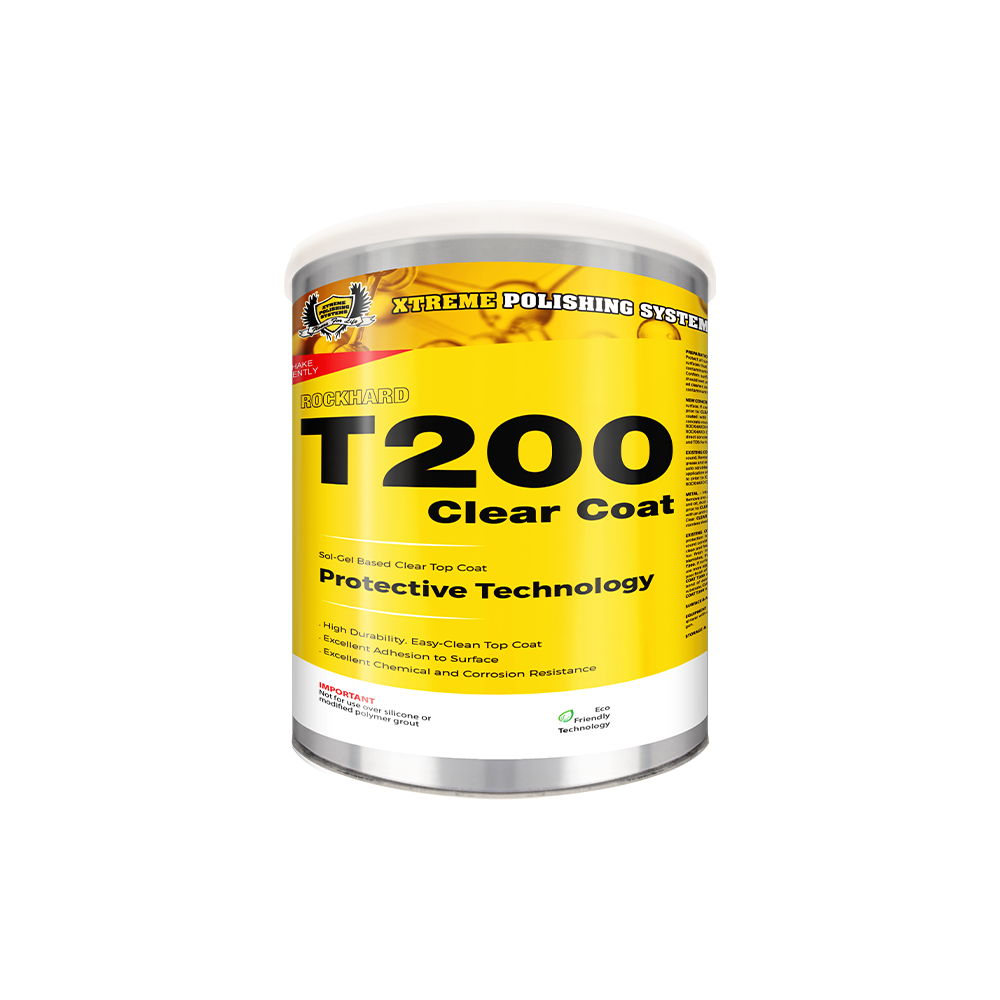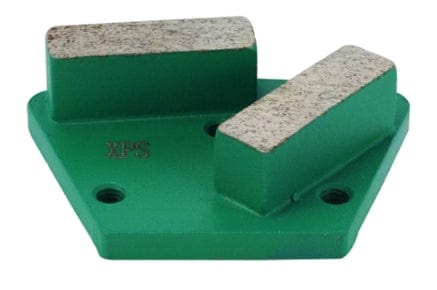The application of industrial floor coatings protects various industrial surfaces from wear and tear, as well as from environmental damage. Each coating project requires different compositions, thicknesses, and durability characteristics.
Industrial floor coatings explained
In the context of performance, durability, and aesthetics, industrial floor coatings refer to protective layers applied to surfaces such as metal, concrete, and wood. Abrasion, corrosion, UV light radiation, moisture, and abrasion are all factors that are protected by industrial floor coatings.
The use of industrial floor coatings is widespread. By enhancing the durability of surfaces, reducing maintenance costs, and improving function, they can improve the overall lifespan of surfaces.
Innovative materials like polymers, resin, and composites are used to make ideal industrial floor coating formulations for aerospace, automotive, construction, and marine applications. Industrial floor coating solutions are constantly evolving to provide more efficient and environmentally friendly options as the demand for sustainable floor coating solutions increases.
Types of industrial floor coatings and the different applications
There are many industrial floor coatings available, including self-leveling epoxy, polyurethane, urethane, and polyaspartic. It is important to note that each floor coating system has distinct properties and applications.
Self-leveling properties and exceptional durability are hallmarks of epoxy floor coatings. Among the industries that use epoxy are aerospace, automotive, and construction. In addition to being chemically resistant, they are also very durable, which makes them an ideal choice for warehouses and industrial floors.

Marine, automotive, and construction industries use polyurethane floor coatings because they are moisture-resistant. Automotive and aerospace applications also benefit from their high abrasion resistance and flexibility.
The automotive and aerospace industries commonly use polyaspartic floor coatings due to their weather-resistant qualities. In addition to being UV radiation resistant, polyaspartic floor coatings are popular for outdoor structures such as bridges and stadiums as well as garages. Among the industries that utilize polyaspartic floor coatings are those that process food and manufacture pharmaceuticals, since they are extremely heat- and chemical-resistant.
Why are industrial floor coatings important?
Various environmental factors can cause industrial infrastructures and buildings to deteriorate. Industrial floor coatings provide protection against these factors. The nature of the project and the floor coating requirements determine the type of material that can be used to create these high-quality coatings.
Many surfaces and structures rely on floor coating systems to protect and maintain their durability. The protection provided by these materials extends the life of the infrastructure by providing excellent resistance to corrosion, chemicals, abrasion, and weathering.

These floor coatings improve the appearance of surfaces and make them easier to maintain and more attractive. Manufacturers, oil and gas companies, transportation companies, and construction companies all use industrial floor coatings.
It is imperative that these industries have specialized floor coatings in order to minimize downtime, increase maintenance costs, and reduce potential safety hazards. Companies looking to maintain uninterrupted operations and protect their assets should invest in high-performance industrial floor coatings.
Which industrial floor coatings are best suited to your needs?
In selecting an industrial floor coating, there are several factors to consider. In order to apply an industrial floor coating to a surface, you need to determine the type of surface. Floor coatings for different surfaces, like concrete or wood, require different solutions.
The industrial floor coating should be evaluated as to how it will perform under different environmental conditions, such as exposure to chemicals, extreme temperatures, or humidity. In order to determine whether corrosion-resistant, heat-resistant, or moisture-resistant industrial floor coatings are necessary, environmental conditions need to be taken into account. In order to achieve optimal floor coating results, the intended use of the coated surface must be taken into consideration.

What kind of traffic, chemicals, or abrasion will it encounter? These factors will determine the thickness and overall durability. Industrial floor coatings often have a certain thickness to ensure that they cover the application area without obscuring small details or complex parts.
Industrial floor coating solutions are essential due to their affordability and ease of application. The cost of some floor coatings can rise significantly due to the need for specialized equipment and skilled applicators. Your industrial floor coating choice will depend on how carefully you consider these factors.
What are the benefits of industrial floor coatings?
A variety of industries can benefit from industrial floor coatings. Corrosion resistance is among its main advantages. By creating a barrier between the substrate and corrosion-prone environments, industrial floor coatings prevent damage and extend the substrate lifespan.
High-temperature applications can be achieved with these coatings due to their heat resistance. Chemical resistance is another advantage, which protects the substrate against spills or leaks.

As well as improving the aesthetic appearance of surfaces, they can also improve the durability of surfaces. Industrial floor coatings can be customized to match company branding or design preferences by choosing different colors and finishes.
Industrial floor coatings can withstand wear, abrasion, and impact damage, making it more durable and wear resistant. Transportation, manufacturing, and construction industries benefit from industrial floor coatings because they provide all these benefits.
The most common challenges of industrial floor coatings
Several common challenges can be encountered when installing industrial floor coatings. The preparation of the substrate surface is one of the most challenging aspects. The industrial floor coating may fail prematurely if the surface is not properly cleaned and prepared.
Cleaning and grinding (or sanding) the floor before applying industrial floor coatings is essential. An additional challenge is selecting the right industrial floor coating system for the particular application. There are many different types of floor coatings with different properties suitable for various environments, so you must choose one that meets your specific requirements and conditions.

It is imperative that the floor coating is applied correctly to avoid problems such as streaking, bubbles, or uneven coverage. Using proper application techniques and following the manufacturer's instructions ensures a smooth and uniform finish.
It is essential to perform regular maintenance and inspections to identify potential issues or damages and take appropriate measures to prevent them from becoming significant issues.
How to avoid these challenges
Different applications can be plagued by adhesion and curing issues. You can address these issues effectively if you follow a few helpful tips. Cleanliness and contamination-free surfaces are crucial.
It is important to clean the surface and prepare it properly in order to improve adhesion. Determine the most suitable adhesive or curing agent for the particular material and application. Material properties or curing times may differ between different adhesives, so choosing the correct product is critical.
In adhesion and curing processes, controlling and monitoring environmental factors, such as temperature and humidity, can have a large impact on the final outcome. Exceptionally high temperatures may result in thermal degradation.
Safety concerns when using industrial floor coatings
Several safety factors must be taken into account when working on industrial floor coatings. Personal protective equipment (PPE) is needed while using these materials. Chemical processes can cause hazardous fumes and splashes that require personal protective equipment (PPE), such as gloves, protective clothing, safety goggles, and masks. To prevent inhalation of harmful vapors, it is essential to work in well-ventilated areas.

There are also some industrial floor coatings that may pose a fire hazard, so extinguishers should always be readily available, and work areas should be free of all sources of ignition. To prevent accidents or exposure to hazardous substances, it is crucial to comply with the manufacturer's instructions and guidelines when handling and storing industrial floor coatings.
Surfaces requiring compliance with food safety regulations are coated with industrial floor coatings. For employees who use industrial floor coatings, regular training in handling techniques and emergency procedures is essential to ensure both their safety and that of others.
Conclusion: Substrates, Materials, and the Environment
A properly applied industrial floor coating will have a significant impact on durability, strength, and overall performance. There are several types of materials, each with unique characteristics, such as conductivity, flexibility or resistance to extreme temperatures.

In order to ensure proper performance, care should be taken in selecting the substrate on which the coating will be applied. Environmental factors are equally important in choosing a coating. Coating longevity and performance can be affected by factors such as temperature, humidity, and exposure to elements.
A thoughtful consideration of these factors ensures that the final application meets the quality standard and performs optimally. Find out more about industrial floor coatings by contacting Xtreme Polishing Systems.


